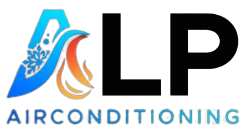FAQ
FAQ'S
There are dozens of factors that could affect AC performance. Some issuescan be avoided by following a few simple maintenance tips. Other problems are more serious and should only be handled by licensed heating and cooling technicians.
Check for the following if your AC won’t turn on:
- Blown fuses or tripped circuit breakers.
- Your thermostat is set for cooling and to the correct temperature.
- A dirty air filter, which should be replaced if necessary.
- Blocked or closed registers and vents to ensure proper airflow.
- Obstructions around the condenser outside which may be blocking air flow. Remove weeds, grass, branches, vines and any object that may be leaning against the unit.
If there is still no cooling, we recommend calling a licensed technician. You can book a tune-up to get your AC inspected and cleaned as part of the regular recommended maintenance on your AC.
If you’re looking for ways to cut your energy bill, check out these simple yet effective strategies.
Get a programmable or smart thermostat
They’re relatively inexpensive and can help save you a bundle. For instance, with a programmable thermostat, you can time your system to turn on an hour or so before you arrive home, helping avoid the costs of cooling an empty house. And there is a growing array of thermostats which can be controlled with mobile apps, which put better energy management literally in the palm of your hand!
Become a fan of ceiling fans.
While a ceiling fan doesn’t actually lower the room temperature, it can make you feel cooler by moving air over your skin. That way, you’ll be more likely to crank down the AC.
A bright idea: energy-saving light bulbs.
Incandescent bulbs are not only energy hogs, they generate more heat than you may think. Switch to more energy-efficient options – your AC and your wallet will love you for it.
Close the curtains and blinds.
The sun’s rays, strongest during the summer months, can heat up any room quickly. So draw curtains and blinds when you can, and especially on hot sunny days. Feeling ambitious? Plant a natural shade like a tree or tall shrub in front of windows that receive a lot of sun.
Avoid oven-cooking on hot days.
Instead of a heat-generating oven, consider cooking in a microwave or on outdoor grill.
Check your furnace for a dirty filter.
A dirty filter can restrict airflow, making your AC work harder than it needs to. Change the filter according to the manufacturer’s instructions, or more frequently if you have pets or suffer from allergies.
Rebates are great — no debates about it
Depending on what province you live in, you could receive attractive rebates when you upgrade your AC or purchase products that help you become more energy efficient, such as programmable thermostats. Visit your local utility website for more information on available rebates and offers.
Are you finding that the air temperature differs from one room to the next, or from one floor to another? Uneven cooling (or heating) is fairly common in multi-story homes. Ductwork problems and dirty or clogged filters can add to uneven home temperatures.
Here are some considerations from our techs on how to solve uneven cooling in your home.
Are registers and vents blocked?
Things like carpets and furniture blocking registers and vents will limit or stop airflow. Move them out of the way so the cool air can circulate more easily.
Tip from a Tech: Homeowners should never fully close vents on the first floor of their homes. This could create pressure build up in the heating and cooling system, which can actually lead to everything from higher energy consumption to equipment failure.
Is your air filter dirty?
A dirty air filter restricts the air flow through and into the rooms where you need it. Ensure your filter is cleaned and changed as recommended by the manufacturer.
Are return air vents clean?
Registers and vents should be kept clean and free of any clutter that may impact air flow. Every couple of months, use your vacuum to clean them off. You’ll also be reducing dust and pollutants in the air you’re breathing.
Are there problems in the ductwork?
Blockages in your home’s ductwork can create uneven cooling in your home by restricting the flow of air. Alternatively, air leaks in your duct system could be the culprit. Leaks caused by holes in your ducts could provide too much air to some rooms and cause too little air flow in others
All air conditioners have a Seasonal Energy Efficiency Rating (SEER). The higher that number is, the more efficient your unit is. The current industry minimum for new air conditioners is 13, but state-of-the-art equipment can reach a SEER as high as 21. While the initial cost of the latter may be higher, the lower monthly operating costs will actually save you money over the life of the system.
Before you call us, check the basics: test the batteries in your thermostat, check for a tripped breaker or blown fuse, change your air filter, make sure the system is set to cool, and that the setting is at least three degrees below current room temperature. If one of these five simple problems are not to blame, call us for a complete cooling system checkup.
